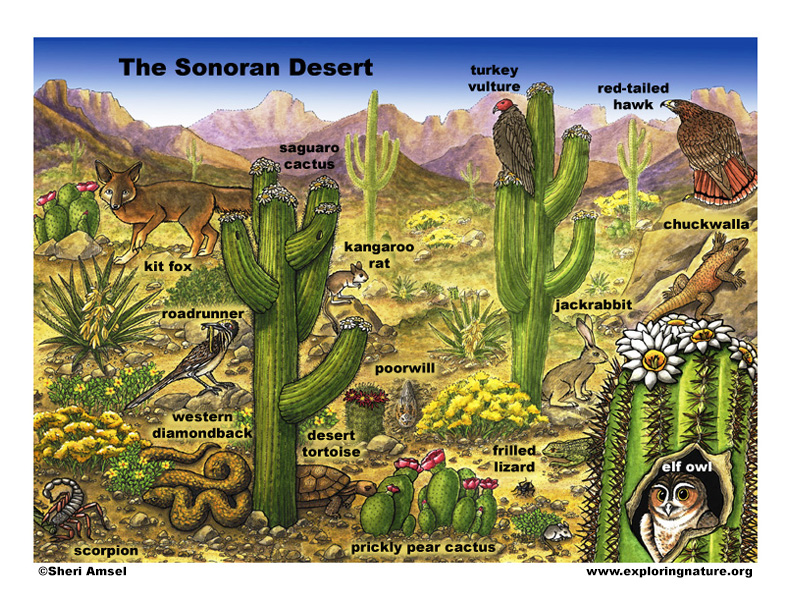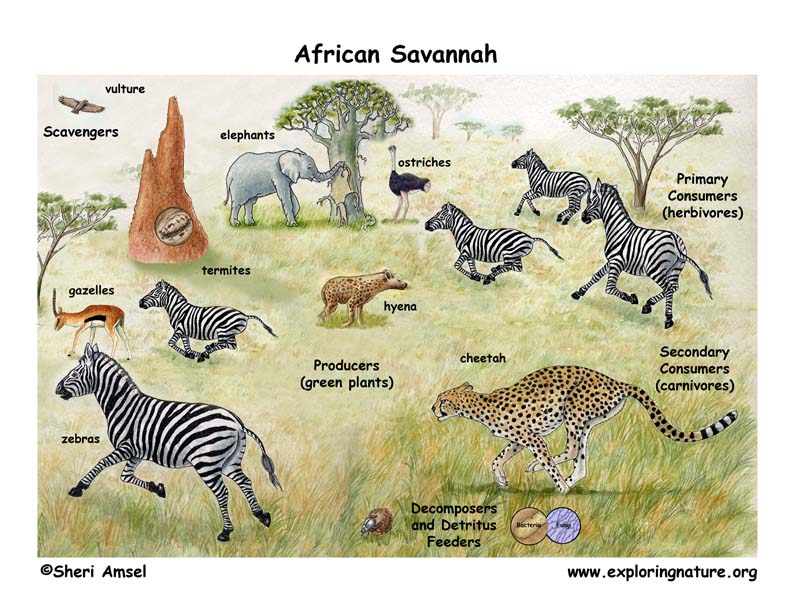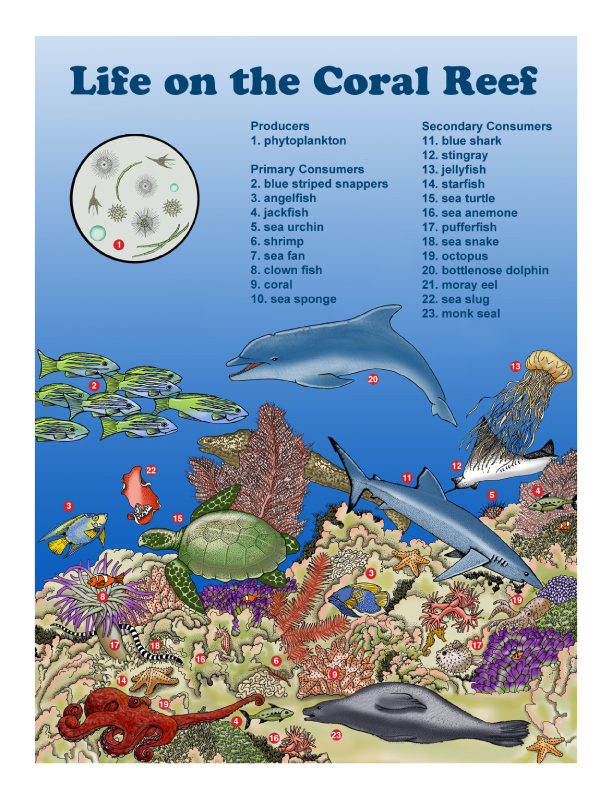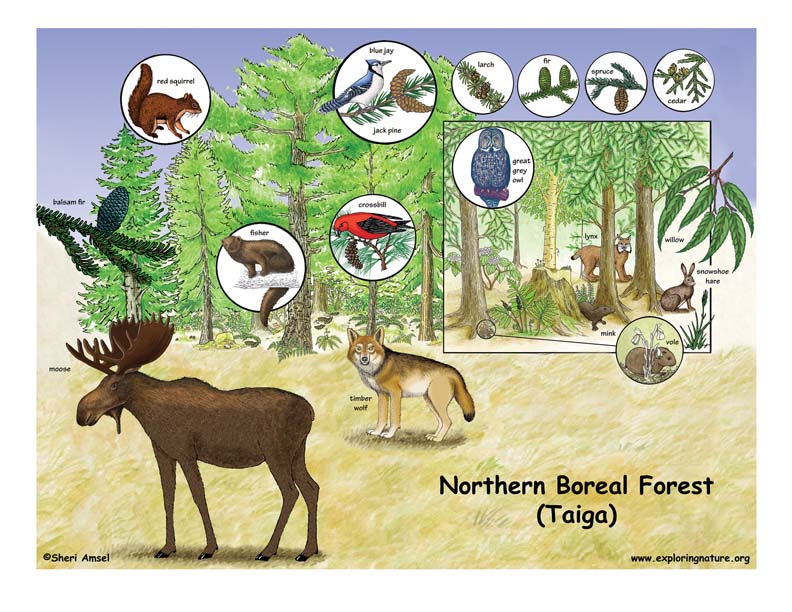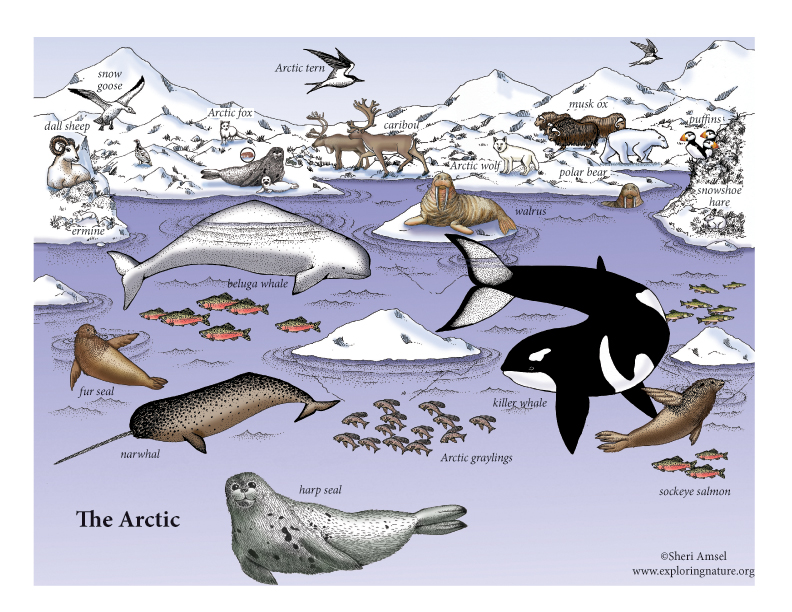

_________________________________________________________________________________________________________________________________________________________
NGSS Disciplinary Core Ideas
LS4.D: Biodiversity and Humans
• There are many different kinds of living things in any area, and they exist in different places on land and in water. (2-LS4-1)
Performance Expectations
Students who demonstrate understanding can:
2-LS4-1. Make observations of plants and animals to compare the diversity of life in different habitats. [Clarification Statement: Emphasis is on the diversity of living things in each of a variety of different habitats.] [Assessment Boundary: Assessment does not include specific animal and plant names in specific habitats.]
_________________________________________________________________________________________________________________________________________________________
Use the Template and Resource Links to Fulfill NGSS
l. Goals:
Essential Questions:
NGSS Note: Think, question, entertain ideas.
ll. Introductory Activities to Assess Prior Knowledge
A. Simple Activities - that assess students’ understanding of where living things live.
Animal Habitat Matching (Color)
Animal Habitat Matching (Black and White)
Animal Homes Matching (Black and White)
Biodiversity - Matching
Desert Habitat Matching
Which Animals Live in Which Habitat? - Labeling Sheets
Animal Homes - Multiple Choice Test
lll. New Knowledge - Text
a. Learning About Where Animals Live: Choose a grouping of animals (from one habitat, country, phylum, class, etc.) in the Animal Database and have students read where in the world each lives (their range) and in what type of habitat.
b. Familiarize students with what animals need to survive and how specific habitats suit their survival needs:
Animals in their Habitat - Model Making (2nd-4th Grade)
Biodiversity and Humans - Read Aloud
Biodiversity and Humans - Vocabulary Cut and Paste
Biodiversity in Different Habitats - Mini-Poster
lV. Experiments, Activities, Model-making (Critical Thinking)
1. Inquiry related to the diversity and habitats of living things. Learning Which Biomes are Home to Which Living Things: Choose a biome in the Biomes Database and have students about the animals and plants found in a particular biome or habitat.
Biodiversity - An Investigation
Biodiversity Investigation Practice - Coral Reef
Biodiversity Investigation Practice - Deciduous Forest
Comparing the Biodiversity of Different Habitats
2. Creating Models: Have students color Habitat Coloring Pages to learn about which animals live in each type of habitat.
3. Studying Models: Below are some Biodiversity Models of living things in their habitats for students to use as models in their work.
V. Summarize Knowledge - Enduring Understandings
Comparing Traits in Animal Groups (Classes) - Graphic Organizer
Vl. New Generation of Science Standards (NGSS) - Grade 2
Disciplinary Core Ideas
LS4.D: Biodiversity and Humans
• There are many different kinds of living things in any area, and they exist in different places on land and in water. (2-LS4-1)etches, drawings, or physical models. These representations are useful in communicating ideas for a problem’s solutions to other people. (secondary to 2-LS2-2)
Science and Engineering Practices (NGSS)
Planning and Carrying Out Investigations
Planning and carrying out investigations to answer questions or test solutions to problems in K–2 builds on prior experiences and progresses to simple investigations, based on fair tests, which provide data to support explanations or design solutions.
• Make observations (firsthand or from media) to collect data that can be used to make comparisons. (2-LS4-1)
Connections to Nature of Science
Scientific Knowledge is Based on Empirical Evidence
• Scientists look for patterns and order when making observations about the world. (2-LS4-1)
Performance Expectations
Students who demonstrate understanding can:
2-LS2-1. Make observations of plants and animals to compare the diversity of life in different habitats. [Clarification Statement: Emphasis is on the diversity of living things in each of a variety of different habitats.] [Assessment Boundary: Assessment does not include specific animal and plant names in specific habitats.]
Common Core State Standards Connections
ELA/Literacy
W.2.7 Participate in shared research and writing projects (e.g., read a number of books on a single topic to produce a report; record science observations).
(2-LS4-1)
W.2.8 Recall information from experiences or gather information from provided sources to answer a question. (2-LS4-1)
Mathematics
MP.2 Reason abstractly and quantitatively. (2-LS4-1)
MP.4 Model with mathematics. (2-LS4-1),(2-LS4-2)
2.MD.D.10 Draw a picture graph and a bar graph (with single-unit scale) to represent a data set with up to four categories. Solve simple put-together, take-apart, and compare problems using information presented in a bar graph. (2-LS4-2)
When you research information you must cite the reference. Citing for websites is different from citing from books, magazines and periodicals. The style of citing shown here is from the MLA Style Citations (Modern Language Association).
When citing a WEBSITE the general format is as follows.
Author Last Name, First Name(s). "Title: Subtitle of Part of Web Page, if appropriate." Title: Subtitle: Section of Page if appropriate. Sponsoring/Publishing Agency, If Given. Additional significant descriptive information. Date of Electronic Publication or other Date, such as Last Updated. Day Month Year of access < URL >.
Amsel, Sheri. "Grade 2 - 2-LS4 Biological Evolution: Unity and Diversity" Exploring Nature Educational Resource ©2005-2024. December 13, 2024
< http://www.exploringnature.org/db/view/Grade-2-2-LS4-Biological-Evolution-Unity-and-Diversity >

